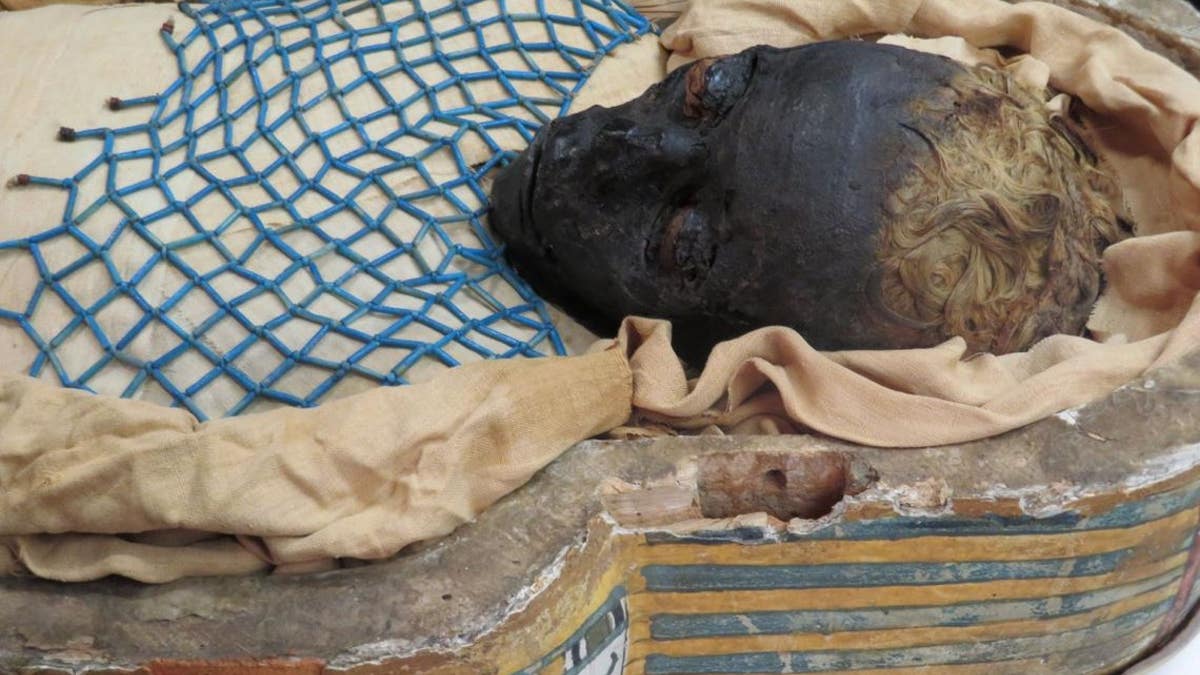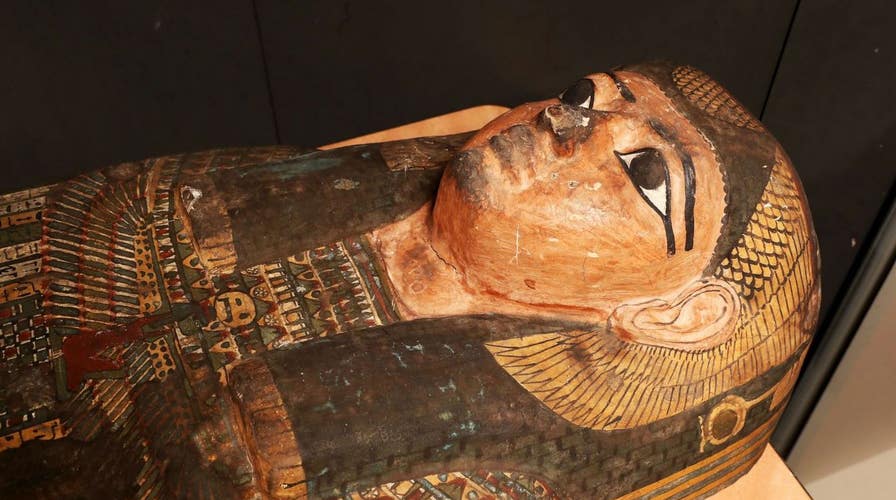Fox News Flash top headlines for Jan. 27
Fox News Flash top headlines for Jan. 27 are here. Check out what's clicking on Foxnews.com.
That's one ancient cold case.
Scientists have finally unraveled the mystery of how Takabuti, an elite Egyptian woman with curly hair from ancient Thebes, met her end over 2,600 years ago.
She suffered a violent death from a knife attack, researchers revealed on the 185th anniversary of her unwrapping in 1835, according to the University of Manchester.

The mummy case for Takabuti, a young woman who was murdered with a knife. (Ulster Museum) (Ulster Museum)
ANCIENT ROCK CARVINGS SHOW PROCESSION OF GODS RIDING MYTHICAL ANIMALS
“There is a rich history of testing Takabuti since she was first unwrapped in Belfast in 1835," said Greer Ramsey, curator of archaeology at National Museums in Northern Ireland, in a statement.
Researchers said the most recent tests included CT scans and DNA analysis.
"It is frequently commented that she looks very peaceful lying within her coffin, but now we know that her final moments were anything but and that she died at the hand of another," Eileen Murphy, a bioarchaeologist at Queen's University Belfast's School of Natural and Built Environment, said in the statement.
Takabuti's mummy can be seen for free in the ancient Egypt gallery at the Ulster Museum in Northern Ireland.
GHENT ALTARPIECE LAMB OF GOD'S 'ALARMINGLY HUMANOID' FACE STUNS ART WORLD

Takabuti was an elite Egyptian woman who died a violent death. (Ulster Museum) (Ulster Museum)
The research team includes scientists from National Museums of Northern Ireland, The University of Manchester, Queen's University Belfast and Kingsbridge Private Hospital.
"This study adds to our understanding of not only Takabuti, but also wider historical context of the times in which she lived: The surprising and important discovery of her European heritage throws some fascinating light on a significant turning point in Egypt's history," Rosalie David, an Egyptologist at The University of Manchester.




















